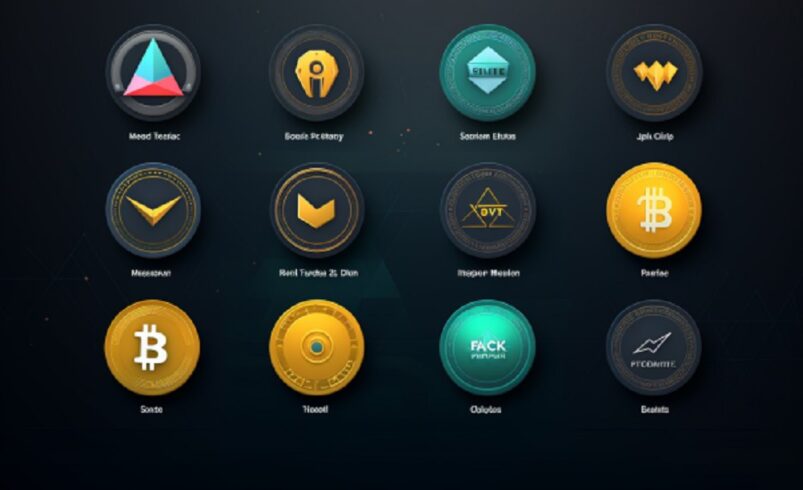Securities Or Commodities: Implications Of Classification For Cryptocurrency Regulation

Table of Contents
The classification of cryptocurrencies as either securities or commodities carries profound implications. This categorization within the United States has created a complex interplay of rules and enforcement mechanisms by the nation’s leading financial regulators.
Understanding this regulatory divide is crucial for stakeholders in the growing cryptocurrency market. Therefore, this comprehensive guide overviews the concept of securities and commodities in cryptocurrency.
Overview Of Securities
Securities constitute the investment markets’ cornerstone. It encompasses various financial instruments such as stocks, bonds, and derivatives.
Regulated by the Securities and Exchange Commission (SEC), securities are subject to a robust framework of regulations. Meanwhile, the case of SEC v W. J. Howey Co. (1946) established a pivotal criterion: security is an “investment contract” where investors anticipate profits primarily from the endeavors of a promoter or a third party.
This landmark decision laid the foundation for the “Howey test,” a reference point in various SEC enforcement cases.
Implications For Cryptocurrencies
Classifying a cryptocurrency as a security requires regulatory approval for the token’s issuers and exchanges. However, attaining a license from securities regulators is often challenging, prompting players in the crypto industry to develop strategies that ensure compliance with the securities laws.
One of such strategies was the concept of decentralization. Developing a cryptocurrency that obscures the identification of a central, coordinated group responsible for its value makes the asset less likely to be categorized as a security by any financial regulator.
That’s why decentralized finance (DeFi) project governance is performed through decentralized autonomous organizations (DAOs) and consensus mechanisms such as proof-of-stake.
Overview Of Commodities
Commodities, serving as tangible assets, encompass a diverse array of physical goods traded in wholesale quantities. This category includes essential agricultural staples like corn and wheat alongside precious metals like gold and silver.
While the Commodity Futures Trading Commission (CFTC) maintains oversight in certain aspects of commodities trading, its regulatory dominion is narrower than the SEC’s purview over securities.
Implications For Cryptocurrencies
Categorizing a cryptocurrency as a commodity rather than a security has unique implications. Unlike securities, where licenses from securities regulators are often a necessity, cryptocurrency issuers and exchanges may not necessarily face the same demanding regulatory hurdles if their tokens are classified as commodities.
Furthermore, this classification may open avenues for innovative applications of cryptocurrencies. A notable example is tokenizing physical commodities on a blockchain, allowing for fractional ownership and more streamlined trading of tangible assets.
This intersection of traditional commodities and blockchain technology introduces novel possibilities for the financial landscape.
Regulatory Impact On Cryptocurrency Market
Classifying cryptocurrencies as securities or commodities presents multifaceted challenges within the crypto market. Crypto exchanges, often a platform for crypto trading, approach the listing of tokens classified as securities with measured caution to avert potential fines and legal entanglements with the SEC.
Furthermore, the evolving landscape of state-specific rules creates additional jurisdictional frameworks that necessitate astute legal navigation for market participants. Hence, this regulatory classification influences investor behavior and sentiment.
Traders and investors must know the legal status of cryptocurrencies before trading such cryptos, mindful of the potential repercussions associated with trading assets categorized as securities.
The Evolving Regulatory Landscape
Meanwhile, the US Congress has been trying to authorize the CFTC with greater regulatory oversight over spot trading of non-securities tokens. This legislative move addresses the unique challenges and nuances this burgeoning asset class poses.
However, some analysts suggest using a dual classification system, where certain cryptocurrencies are labeled securities with others as commodities. This suggestion could lead to a more intricate regulatory framework, with distinct rules for cryptocurrencies based on their categories.
Alternatively, lawmakers may treat crypto as a distinct asset class, necessitating custom rules tailored to their unique characteristics.
Navigating The Regulatory Landscape
The ongoing debate over whether cryptocurrencies should be classified as securities or commodities is complex but has far-reaching implications for the crypto industry. As legislators and regulators discuss this issue, a vigilant observation of the progress of this matter is necessary.
Their decisions will influence how these digital assets are traded, listed, and regulated for years.
Time Crypto Market offers content visibility for dozens of crypto enterprises, and you can be a part of our network! Reach out to us on our telegram chat for inquiries. The nature of cryptocurrencies is highly unpredictable; always perform your due diligence before any investment. Several articles on our site come from guest contributors or are commissioned pieces, not originating from Time Crypto Market's in-house writers. The perspectives shared in these articles might not necessarily align with those of Time Crypto Market. We do not assume responsibility for the veracity, caliber, promotions, offerings, or any other elements presented on our platform. Consult our comprehensive terms of service and disclaimer for more details.








